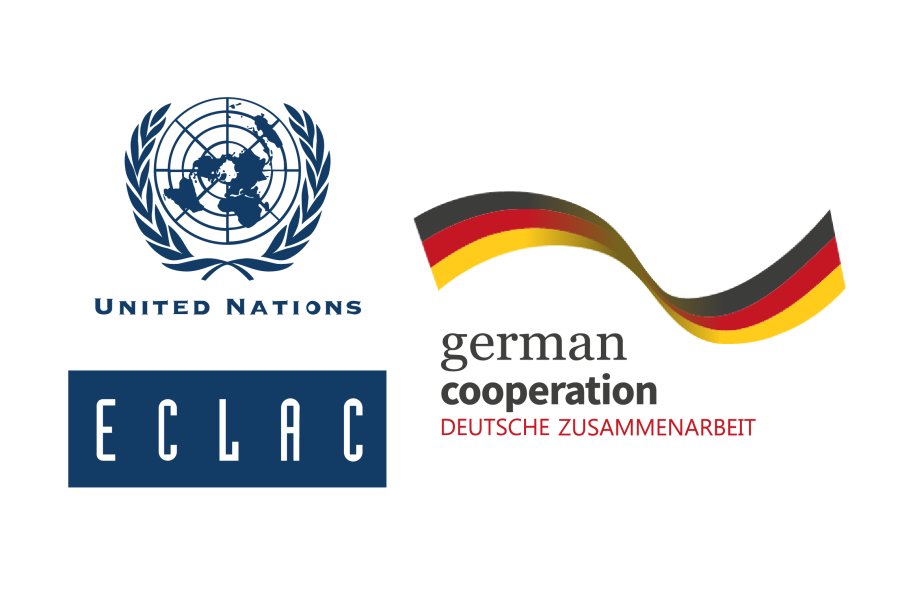Specialists at ECLAC agreed on the need to rethink labor informality in the region, in the light of technological change
Work area(s)
A seminar on the subject was inaugurated in Santiago de Chile, by senior representatives of ECLAC and the German Cooperation GIZ.

It is necessary to rethink the phenomenon of labor informality considering both the structural gaps that persist in Latin America and the Caribbean and the technological transformations that are developing rapidly in the world. This was the shared opinion of specialists, gathered at a two-day event at the headquarters of the Economic Commission for Latin America and the Caribbean (ECLAC) in Santiago, Chile.
The international seminar New and Old Forms of Labor Informality and Precarious Employment was inaugurated on Wednesday, April 3rd by Mario Cimoli, ECLAC Deputy Executive Secretary, and Manfred Haebig, representative of the German cooperation agency GIZ, and was attended by specialists from the International Labor Office (ILO), the Organization for Economic Cooperation and Development (OECD) and the Inter-American Development Bank (IDB), as well as academicians and representatives of public entities from several Latin American and Caribbean countries.
The meeting was co-financed by the cooperation program that ECLAC is carrying out with the Government of Germany.
During his speech, Mario Cimoli pointed out that the analysis of informality, which is an obstacle to the full exercise of labor and social rights by workers in the region, should not be limited to labor market policies, but should also link this phenomenon to structural and economic factors such as economic growth, technological change, the dynamics of poverty and inequality reproduction and the region's external restrictions.
"We must reinstate the issue of informality as an important component of the economic and social analysis of the region," highlighted the ECLAC representative, who warned especially about the challenges associated with rapid technological change.
Along with highlighting the history of cooperation between Germany and ECLAC on labor market issues, Manfred Haebig recognized the existence of major challenges in addressing labor informality not only in Latin America and the Caribbean but also in Europe, although with different emphases. "There is a rather drastic change in perspective. Germany and some countries in the region talk about informality in a different way" because digital transformation intersects with the characteristics of the labor market, he said.
The seminar was the starting point for the activities of the project "Technological transformations in Latin America: promoting productive jobs and facing the challenges of new forms of informality", which is coordinated by ECLAC's Economic Development and Social Development divisions together with the Office in Buenos Aires, with funds from the United Nations Development Account.
According to the project's background, in Latin America and the Caribbean, informality is closely linked to the productive structure, since a large proportion of the labor force works in low-productivity sectors that are characterized by a lack of labor regulation coverage and of access to social protection. In high or medium-productivity sectors, in which companies tend to be more formal, the incidence of informal employment is also observed, although to a lesser extent, mainly as a reflection of cost-reduction strategies. The ILO estimates that, between the two modalities, 53.8% of urban workers in Latin America and the Caribbean were informally employed in 2016.
On the other hand, today, through digital platforms jobs are being generated that are not covered by existing labor legislation, thus threatening to give rise to a new form of informality and labor precariousness.
For this reason, formalization policies should take the structural roots of informality into account and adjust to new challenges. The countries of the region have made progress in different areas of formalization policies, but the current economic context slows this down significantly, as the generation of formal employment has been weakened by the modest growth rates of economic activity in recent years. In addition, the design of labor regulation and social protection policies that consider the characteristics of the work of digital platforms poses the challenge of ensuring these workers’ enjoyment of labor and social rights without limiting the opportunities that new technologies can bring.
Related content
Subregional headquarter(s) and office(s)
Type
Country(ies)
- Latin America and the Caribbean

